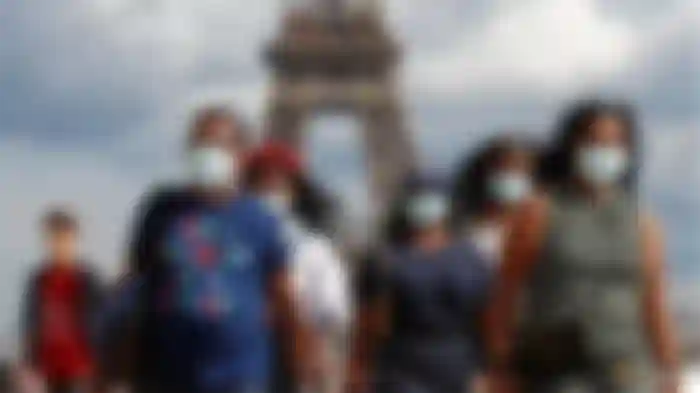
PARIS: France could "at any moment" lose control over the spread of the coronavirus, the government's COVID-19 scientific council warned Tuesday (Aug 4) as official data showed the first rise in intensive care patients since April.
In an opinion prepared for the government, the council warned "the virus has recently been circulating more actively, with an increased loss of distancing and barrier measures" since France emerged from a strict two-month lockdown in May.
"The balance is fragile and we can change course at any time to a less controlled scenario like in Spain for example," it said.
After strict lockdown measures pushed down infection rates, many European countries are now watching numbers creep back up, a consequence of easing curbs to try to limit economic damage and greater social mixing in the holiday season.
The council also warned it is "highly likely" a second wave of the coronavirus epidemic will hit France in the autumn or winter.
"It is highly likely that we will experience a second epidemic wave this autumn or winter," it said.
In the immediate term, retaining control is largely in the hands of citizens and their adherence to anti-infection measures, such as keeping a safe distance from others, regular hand-washing, and wearing masks in public spaces, it said.
French authorities have already started to tighten public hygiene rules, with cities such as Lille and Nice ordering people to wear masks in busy pedestrian streets.
The southern city of Toulouse joined the ranks of local authorities Tuesday taking steps to oblige people to wear masks outdoors in certain situations, on top of the national requirement to cover up in shops and other shared spaces indoors.
Paris too wants to make the wearing of face masks mandatory in certain outdoor areas, French daily Le Monde reported on Tuesday.
The paper said that mayor Anne Hidalgo would put in a formal request with the Paris prefecture about ordering the use of face coverings in specific areas.
The outdoor areas targeted would be shopping streets, the banks of the river Seine, parks and gardens, open food markets and all areas where tourists or Parisians have to stand in line.
Data released by the health department on Monday showed the number of people in intensive care had risen by 13 since Friday, breaking a downward trend observed since April, when French people were under strict stay-at-home orders to curb the spread of the virus.
Twenty-nine new deaths were reported over the same period, bringing the country's total toll to 30,294.
At the height of the outbreak in April, more than 7,100 people were at one point receiving intensive care in French hospitals, which had 5,000 intensive care beds available when the crisis hit.
France now has a total of 191,295 COVID-19 cases.
"PROBABLE SECOND WAVE"
The rate of confirmed infections has exceeded 1,000 per day since late July.
Prime Minister Jean Castex on Monday urged France "not to let down its guard" in order to prevent a new national lockdown.
"We are seeing an increase in the figures for the epidemic which should make us more attentive than ever," Castex said.
"I call on every French person to remain very vigilant. The fight against the virus depends of course on the state, local communities, institutions, but also on each of us," he added.
The science council said the government's response to a "probable second wave" of coronavirus infections would have to be different to the first.
It urged the authorities to put in place "prevention plans" for the France's largest and densely-populated metropolitan areas, with localised home-confinement strategies to be tightened or loosened in step with epidemic development.
Yonathan Freund, an emergency doctor at Paris's Pitie-Salpetriere hospital, is among experts to caution against over-reacting.
"The situation in France today does not justify saying there has been a worsening," he told AFP.
"If there are 1,000 cases per day, it is because the virus is still in circulation, and it is normal," he said.
And epidemiologist Antoine Flahault said the focus of authorities seems to have shifted from preventing another run on hospital beds - an acceptable risk approach - to suppressing virus circulation to the lowest possible level, or a doctrine of "zero risk".
